 1 citations,
October 2018 in “InTech eBooks”
1 citations,
October 2018 in “InTech eBooks” The document concludes that treatments for cicatricial alopecia are not well-supported by evidence, but hair transplantation shows more predictable and satisfactory results.
1 citations,
November 2005 in “Hair transplant forum international” Understanding scalp conditions is crucial for successful hair transplants.

Hair transplants can cause hair loss if done while lichen planopilaris is active; wait until it's inactive for two years and check with a scalp biopsy first.
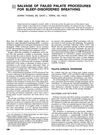 December 2002 in “Operative Techniques in Otolaryngology-Head and Neck Surgery”
December 2002 in “Operative Techniques in Otolaryngology-Head and Neck Surgery” Hair loss from trauma can be managed using scalp expansion, flaps, and hair transplants to improve appearance and well-being.
 14 citations,
September 2010 in “Annals of Plastic Surgery”
14 citations,
September 2010 in “Annals of Plastic Surgery” Hair restoration has evolved from surgery to drugs to potential gene therapy, with improved results and ongoing research driven by high demand.
17 citations,
December 1970 in “Archives of Otolaryngology - Head and Neck Surgery” Hair transplants are safe and effective for long-term hair growth.
 9 citations,
July 1992 in “Clinics in Dermatology”
9 citations,
July 1992 in “Clinics in Dermatology” Scalp reduction surgery can effectively treat male pattern baldness when tailored to the patient and performed with care to minimize complications.
 10 citations,
January 2010 in “Springer eBooks”
10 citations,
January 2010 in “Springer eBooks” Asian hair restoration surgery requires different methods due to the unique characteristics of Asian hair, such as its sparseness and coarseness.
 November 2002 in “Dermatologic Surgery”
November 2002 in “Dermatologic Surgery” Scalp reduction gives the most natural result for significant crown baldness, despite potential complications, and a systematic approach to surgical hair restoration results in few complications and high graft survival.
 May 2015 in “Journal of The American Academy of Dermatology”
May 2015 in “Journal of The American Academy of Dermatology” Some people may temporarily lose more hair in certain areas after a hair transplant.
 October 2024 in “Cosmoderma”
October 2024 in “Cosmoderma” Proper hair care and suitable products are essential for men's scalp health and well-being.
 67 citations,
September 2003 in “Plastic and Reconstructive Surgery”
67 citations,
September 2003 in “Plastic and Reconstructive Surgery” Micrografts and minigrafts are safe and effective for hair transplantation in facial and scalp reconstruction, providing high patient satisfaction.
24 citations,
August 2020 in “JAMA dermatology” Persistent radiation-induced hair loss is dose-dependent, and treatments like topical minoxidil can be effective.
 8 citations,
January 2015 in “Scars, burns & healing”
8 citations,
January 2015 in “Scars, burns & healing” Hair transplantation effectively treats burn scar alopecia, improving self-esteem and confidence.

Hair loss in African American women, caused by hair care, genetics, and environment, needs more research for better treatment.
 11 citations,
January 2018 in “Annals of Dermatology”
11 citations,
January 2018 in “Annals of Dermatology” Some people experienced temporary hair loss after hair transplant surgery but recovered fully within 10 months.
 October 2023 in “Journal of cosmetic dermatology”
October 2023 in “Journal of cosmetic dermatology” Timely treatment and prevention are crucial to avoid serious complications in hair transplants.

Female hair loss is often hereditary and can be treated with medication, hair transplants, and lasers.
 June 2023 in “Brazilian Journal of Health Review”
June 2023 in “Brazilian Journal of Health Review” Common baldness is a hereditary condition that can be treated with medications or surgery to prevent progression and improve self-esteem.
 14 citations,
December 2010 in “Dermatologica Sinica”
14 citations,
December 2010 in “Dermatologica Sinica” New treatments for hair loss show promise, but more development is needed, especially for tough cases.
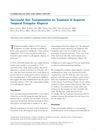 12 citations,
June 2012 in “Dermatologic Surgery”
12 citations,
June 2012 in “Dermatologic Surgery” Hair transplantation effectively treated a woman's patchy hair loss when other treatments failed.
4 citations,
November 2020 in “Journal of Craniofacial Surgery” Scalp Micropigmentation is an effective and safe option for hair restoration and camouflaging scalp scars.
 40 citations,
December 1980 in “The Journal of Dermatologic Surgery and Oncology”
40 citations,
December 1980 in “The Journal of Dermatologic Surgery and Oncology” An improved scalp reduction technique reduces the need for hair grafts and has minimal complications.
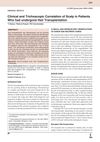 1 citations,
January 2017 in “International Journal of Dermoscopy”
1 citations,
January 2017 in “International Journal of Dermoscopy” A dermatoscope is important for evaluating hair transplants and managing patient expectations.
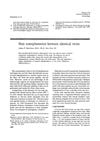 1 citations,
August 1988 in “Journal of The American Academy of Dermatology”
1 citations,
August 1988 in “Journal of The American Academy of Dermatology” Hair transplantation between identical twins can successfully treat severe, nonprogressive hair loss due to follicular aplasia.
 August 2023 in “International journal of research and review”
August 2023 in “International journal of research and review” Homeopathy can effectively treat pattern hair loss by using remedies like Lycopodium Clavatum and Natrum Muriaticum, tailored to the patient's overall condition.
 October 2021 in “Journal of the European Academy of Dermatology and Venereology”
October 2021 in “Journal of the European Academy of Dermatology and Venereology” There have been major advances in diagnosing and treating hair loss over the last 30 years, with new drugs and improved hair transplant techniques.
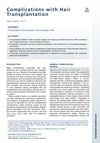 12 citations,
April 2020 in “Facial Plastic Surgery Clinics of North America”
12 citations,
April 2020 in “Facial Plastic Surgery Clinics of North America” Hair transplant complications are rare with good planning and technique, but risks include infection, bleeding, and patient dissatisfaction.
 1 citations,
July 2022 in “Clinical dermatology review”
1 citations,
July 2022 in “Clinical dermatology review” Hair transplantation is an effective hair loss treatment with two main techniques, requires careful planning, and can improve beard and eyebrows appearance.
 2 citations,
January 2019 in “PubMed”
2 citations,
January 2019 in “PubMed” The study concluded that certain areas of the scalp and beard are safe for hair transplant donor sites in Indian men.


























